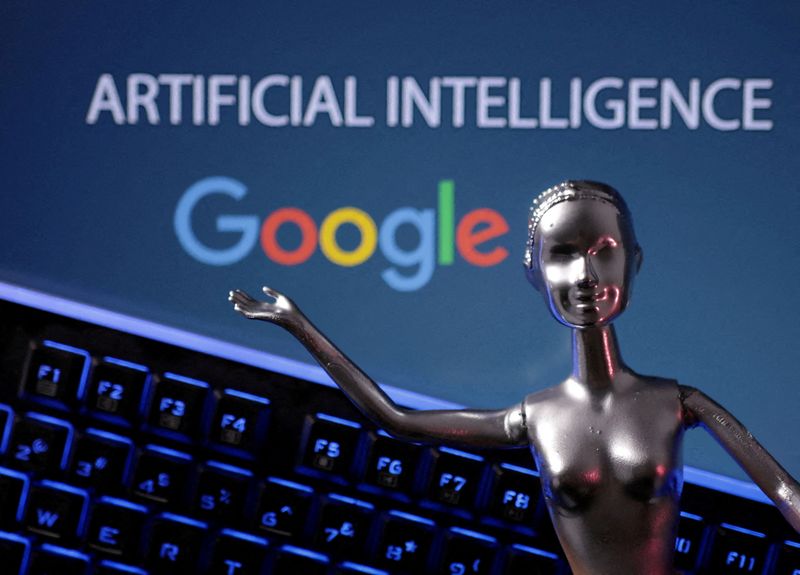EU, Google to develop voluntary AI pact ahead of new AI rules, EU’s Breton says
2023.05.24 13:33

© Reuters. FILE PHOTO: Google logo and AI Artificial Intelligence words are seen in this illustration taken, May 4, 2023. REUTERS/Dado Ruvic
2/2
By Foo Yun Chee
BRUSSELS (Reuters) – Alphabet (NASDAQ:) and the European Commission aim to develop an artificial intelligence (AI) pact involving European and non-European companies before rules are established to govern the technology, EU industry chief Thierry Breton said on Wednesday.
Breton earlier met Sundar Pichai, CEO of Google and its parent company Alphabet, in Brussels.
“Sundar and I agreed that we cannot afford to wait until AI regulation actually becomes applicable, and to work together with all AI developers to already develop an AI pact on a voluntary basis ahead of the legal deadline,” Breton said in a statement.
He also urged EU countries and EU lawmakers to finalise details of the Commission’s proposed AI rules before the end of the year. Both groups have yet to start negotiations to iron out their differences.
Concern is mounting about fast-developing AI’s potential to upend the way society and businesses operate. Governments are scrambling to find a way to rein in negative consequences without losing the benefits, or stifling innovation.
EU Commissioner for Competition Margrethe Vestager, who also met Pichai, underlined the need to act together.
“We need the AI Act as soon as possible. But AI technology evolves at extreme speed. So we need voluntary agreement on universal rules for AI now,” she said in a tweet.
The European Union and the United States plan to step up cooperation on artificial intelligence to establish minimum standards before legislation enters force, Vestager said on Tuesday.
Commission Vice President Vera Jourova said she voiced her concerns to Pichai about the spread of pro-Kremlin war propaganda and disinformation on Google’s products and services and the risks of disinformation in EU and national elections.
Pichai agreed to look into problems faced by independent Russian media in monetising their content in Russia on YouTube, Jourova said.








